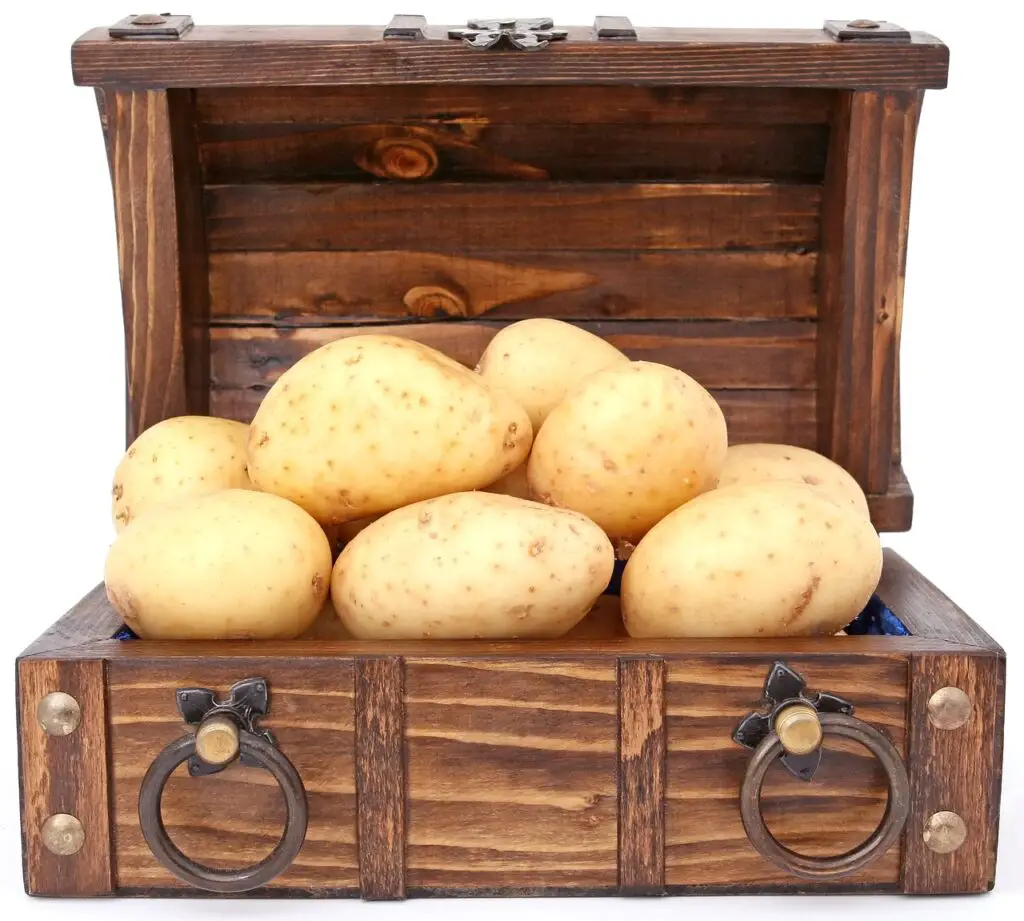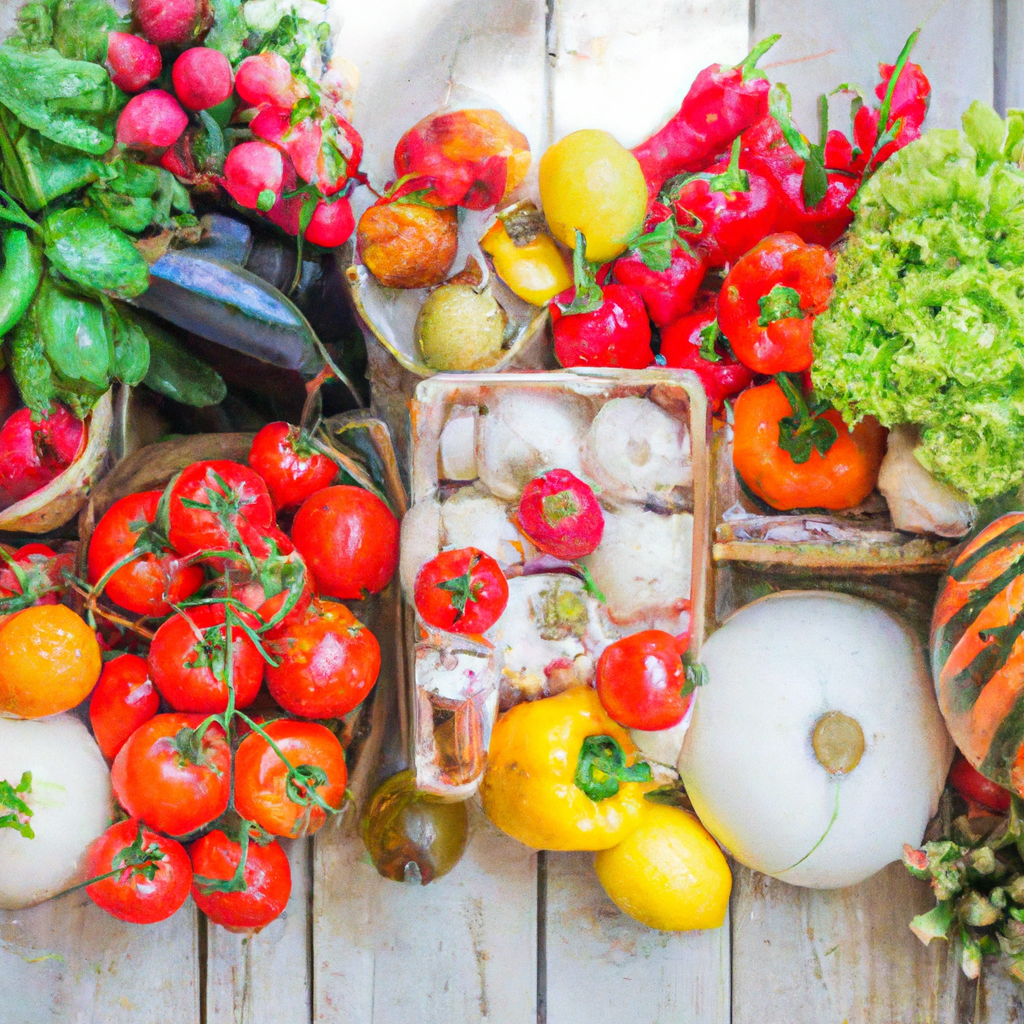In the article “Smart Strategies for Reducing Grocery Bills,” you will discover practical tips and tricks to save money on your grocery shopping without compromising on the quality of items you purchase. Whether you want to cut back on expenses or simply become a savvier shopper, this article will provide you with insights on how to navigate the aisles, leverage promotions, and make the most of your grocery budget. With these strategies in mind, you’ll be able to make smarter choices and enjoy significant savings on your next trip to the supermarket.

Plan Your Meals
Create a Weekly Meal Plan
One of the smartest strategies for reducing your grocery bills is to create a weekly meal plan. By planning out your meals in advance, you can avoid unnecessary trips to the store and make sure you only buy what you need. Sit down at the beginning of each week and decide what meals you want to prepare. Take into account any leftovers or ingredients you already have on hand. This way, you can create a shopping list based on the meals you’ve planned and avoid buying unnecessary items.
Shop with a List
Once you have your weekly meal plan ready, it’s time to hit the grocery store. But before you do, make sure you have a list with you. Shopping with a list helps you stay focused and prevents impulse buying. Write down all the items you need for your planned meals, as well as any other household essentials you might need. Having a list in hand will also save you time as you navigate the aisles, ensuring you don’t forget anything and eliminating the need for multiple trips to the store.
Utilize Leftovers
Another great way to reduce your grocery bills is to utilize leftovers. When you prepare a meal, consider making extra portions that can be enjoyed as leftovers the next day. This way, you can stretch your groceries and get more meals out of the same ingredients. Leftovers can often be repurposed into creative and delicious new dishes, saving you time and money. By making use of what you already have, you can minimize food waste and maximize your budget.
Shop in Season
Understand Seasonal Produce
Shopping for seasonal produce is not only a healthy choice, but it can also help you save money on your grocery bills. When fruits and vegetables are in season, their abundance lowers their prices. Take the time to research which fruits and vegetables are currently in season, as they will likely be more affordable and of better quality. In addition to saving money, you’ll also enjoy produce that is at its peak flavor and nutritional value.
Buy Locally
Buying locally is not only a great way to support local farmers and businesses, but it can also be a smart strategy for reducing your grocery bills. When you buy directly from farmers or at local farmer’s markets, you cut out the middleman and avoid additional costs associated with transportation and storage. Local produce is often fresher and picked at its peak, ensuring great quality and taste. Plus, you’ll have the opportunity to discover unique varieties and support sustainable practices.
Check for Discounts on Seasonal Items
When shopping for seasonal items, keep an eye out for any discounts or promotions. Many stores offer special deals on seasonal produce to attract customers. Look for signs or flyers indicating discounts on specific fruits and vegetables. These discounts can significantly reduce your grocery bills and allow you to enjoy fresh, seasonal produce at a more affordable price. Don’t forget to check if there are any bulk discounts available as well.
Compare Prices
Shop at Different Stores
One of the best strategies for saving money on groceries is to compare prices at different stores. Different retailers often have different prices for the same products. Take the time to research and visit multiple stores in your area to find the best deals. Pay attention to weekly sales, promotions, and discounts offered by each store. By shopping around, you can save money on your grocery bills and get the most value for your budget.
Use Price Comparison Apps
Thanks to modern technology, comparison shopping has become easier than ever. There are numerous price comparison apps available that allow you to compare prices for specific items across different stores. These apps provide you with real-time information on prices, deals, and discounts. You can also set up price alerts to be notified when your favorite items go on sale. Utilizing these apps can help you make informed purchasing decisions and find the best prices for the items on your shopping list.
Consider Generic Brands
If you’re looking to save money on groceries, consider trying out generic or store brands. These products often have the same quality as their branded counterparts but come at a lower price. Don’t be afraid to give them a try and see if they meet your expectations. In many cases, the price difference between generic and branded items is significant, allowing you to save money without sacrificing quality.
Take Advantage of Sales and Coupons
Plan Shopping around Sales
Timing your shopping trips around sales can greatly reduce your grocery bills. Most stores offer weekly or monthly sales on various products. Take the time to plan your shopping trips accordingly so you can take advantage of these discounts. Keep an eye on store flyers or subscribe to email newsletters to stay informed about upcoming sales. By being strategic with your shopping, you can save money on the items you regularly purchase.
Use Coupons and Promotions
Coupons and promotions are another great way to save money on groceries. Look for coupons in newspapers, magazines, or online platforms dedicated to couponing. Many stores also offer digital coupons that can be loaded onto your loyalty card or used through specific apps. Take the time to organize your coupons and bring them with you when you go shopping. By using them at the checkout, you can enjoy significant savings on your overall grocery bill.
Join Loyalty Programs
Joining loyalty programs at your favorite grocery stores can lead to great discounts and savings. Most loyalty programs offer exclusive deals, rewards, and personalized coupons for their members. Sign up for these programs and make sure to always use your loyalty card when making purchases. Over time, you can accumulate points or earn cashback that can be redeemed to further reduce your grocery bills. Take advantage of the loyalty programs available to you and watch your savings grow.

Buy in Bulk
Be Strategic with Bulk Purchases
Buying in bulk can be a cost-effective way to save money on groceries, but it requires careful planning. Before purchasing in bulk, make sure to assess the items you regularly use and have space to store. Staples like rice, pasta, canned goods, and cleaning supplies are good candidates for bulk purchases. Take advantage of sales or discounts on bulk items to maximize your savings. However, always be mindful of expiration dates and ensure that you can consume or use the bulk items before they go bad.
Consider Splitting Bulk Items
If buying in bulk seems too overwhelming or you don’t have enough storage space, consider splitting bulk items with friends or family members. This way, you can still enjoy the savings of buying in bulk without the risk of wasted products. Coordinate with a group of trusted individuals and divide the cost and quantity of bulk items among yourselves. Not only will you save money, but you’ll also foster a sense of community and cooperation.
Store Bulk Items Properly
Properly storing bulk items is crucial to enjoy their full value and prevent waste. Make sure to transfer items from their original packaging into airtight containers to maintain freshness and prevent spoilage. Label each container with the item’s name and expiration date, if applicable. Store bulk items in a cool, dry place away from direct sunlight. By taking these simple steps, you can extend the shelf life of your bulk purchases and get the most out of your investment.
Avoid Impulse Buying
Stick to Your Shopping List
One of the easiest ways to reduce your grocery bills is to stick to your shopping list. Impulse buying can quickly add up and lead to unnecessary expenses. Before entering the store, make sure you have a well-planned list of the items you need. As you shop, resist the temptation to add extra items to your cart that are not on your list. Stay focused and remind yourself of your budget and priorities.
Shop on a Full Stomach
Shopping on an empty stomach can make you more prone to impulse buying. When you’re hungry, everything looks tempting, and you may end up purchasing items that you don’t truly need. To avoid this, make sure to eat a meal or snack before heading to the grocery store. By shopping on a full stomach, you’ll be more rational in your purchasing decisions and less likely to succumb to impulse buying.
Avoid Shopping with Kids
Shopping with children can be a fun experience, but it can also lead to impulse buying. Kids often ask for snacks, treats, or toys that are not on your shopping list. To avoid unnecessary expenses and stay focused, try to go grocery shopping without your children whenever possible. If you have no choice but to bring them along, prepare them beforehand by explaining that you’re on a budget and can only purchase the items on the list. Involving them in the shopping process can also help teach them about budgeting and smart shopping habits.

Use Cashback and Reward Programs
Sign up for Cashback Apps and Websites
Cashback apps and websites are an excellent way to earn money back on your grocery purchases. Sign up for popular cashback platforms and browse the offers available. These apps often have a wide range of grocery items eligible for cashback. After making your purchase, simply upload your receipt and wait for the cashback to be credited to your account. Over time, these small amounts can add up and provide you with extra savings.
Link Store Loyalty Cards to Earn Points
Many grocery stores offer store-specific loyalty cards that allow you to earn points on your purchases. Make sure to sign up for these loyalty programs and link your card to your account. By doing so, you can accumulate points every time you shop. These points can later be redeemed for discounts, free products, or even cashback. Take advantage of the earning potential of these loyalty programs and maximize your grocery savings.
Maximize Rewards on Credit Cards
If you use a credit card for your grocery purchases, consider using one that offers rewards or cashback specifically for grocery spending. Look for credit cards that offer higher cashback rates or bonus rewards for grocery purchases. Before applying, make sure to read the terms and conditions to understand how the rewards program works. By using a credit card that caters to your grocery needs, you can earn extra savings and potentially even score additional perks.
Meal Prep and Cook at Home
Prepare Meals in Advance
Meal prepping is a fantastic way to save money on groceries and streamline your cooking process. Set aside some time each week to prepare multiple meals in advance. Cook larger quantities and portion them out into individual containers. This way, you’ll always have homemade meals ready to go, saving you from resorting to costly takeout or dining out. Not only does meal prepping save you money, but it also helps you stay organized and ensures you’re eating nutritious meals.
Cook from Scratch
Cooking from scratch is not only cheaper than relying on pre-packaged or processed foods, but it’s also much healthier. By cooking your meals using fresh ingredients, you have control over the quality and nutritional value of what you consume. Invest in some basic cooking skills and experiment with different recipes and flavors. With time, you’ll become more confident and efficient in the kitchen, ultimately leading to more cost-effective and delicious meals.
Limit Eating Out
Reducing your dining out habits is key to slashing your grocery bills. While eating out can be convenient, it’s often much more expensive than cooking at home. Try to limit eating out to special occasions or treat it as an occasional indulgence. By cooking more meals at home, you’ll not only save money but also have the opportunity to bond with family or friends over homemade meals. And remember, cooking at home doesn’t have to be complicated – simple, budget-friendly recipes can still be incredibly satisfying.

Food Storage and Preservation
Properly Store Fruits and Vegetables
Proper food storage is essential for prolonging the shelf life of your fruits and vegetables. Different produce requires different storage methods. Some fruits and vegetables, such as tomatoes and bananas, should be stored at room temperature, while others like lettuce and berries need to be refrigerated. Make sure to remove any packaging or rubber bands and store produce in breathable containers or bags. This way, you can prevent spoilage and extend the freshness of your fruits and vegetables.
Freeze Bulk Items
If you’ve bought bulk items and are concerned about them going bad, freezing is a great solution. Many foods can be frozen for extended periods without significant loss of quality or taste. Portion out bulk items into freezer-safe containers or bags and label them with the name and date. This will make it easier for you to find and use them later. Freezing can preserve ingredients such as meat, bread, and even vegetables, ensuring they don’t go to waste.
Preserve Excess Produce
If you find yourself with excess produce that you won’t be able to consume before it spoils, consider preserving it. There are various methods of preservation, such as canning, pickling, or making jams and sauces. These techniques allow you to extend the life of your produce and enjoy it later. Research different preservation methods and find ones that suit your preferences and available time. By preserving excess produce, you can eliminate waste and save money in the long run.
Optimize Shopping Habits
Avoid Shopping When Hungry
As mentioned earlier, shopping on an empty stomach can lead to impulse buying. Hunger can cloud your judgment and make you more likely to purchase unnecessary items, especially unhealthy snacks. To avoid this, always ensure you’re well-fed before heading to the grocery store. You’ll be able to make rational decisions based on your shopping list and avoid succumbing to cravings.
Don’t Shop for Single Meals
To maximize your savings and reduce your grocery bills, try not to shop for single meals. Instead of buying ingredients for only one or two meals, focus on versatile ingredients that can be used in multiple recipes. For example, buying a whole chicken instead of pre-packaged chicken breasts allows you to use the leftovers for sandwiches or salads. By planning your meals strategically and buying ingredients in bulk, you’ll have more options and save money in the long run.
Shop Alone
Shopping alone can help you stay focused and avoid unnecessary distractions that may lead to impulse buying. When you shop with others, it’s easy to get swayed by their suggestions or be tempted by items they want to buy. If possible, try to do your grocery shopping alone. This way, you can stick to your shopping list and stick to your budget without any external influences. Shopping alone can be a peaceful and efficient experience, enabling you to make smart and cost-effective choices.

